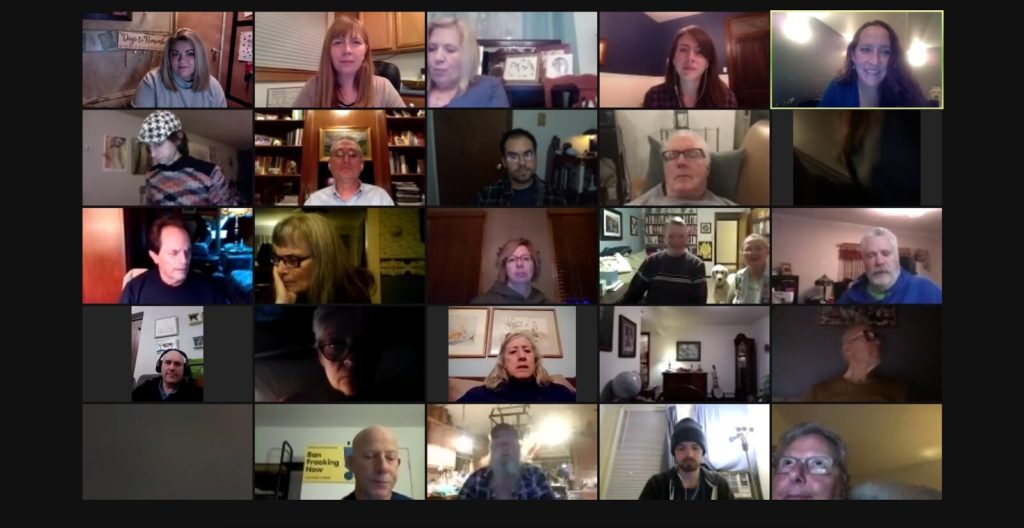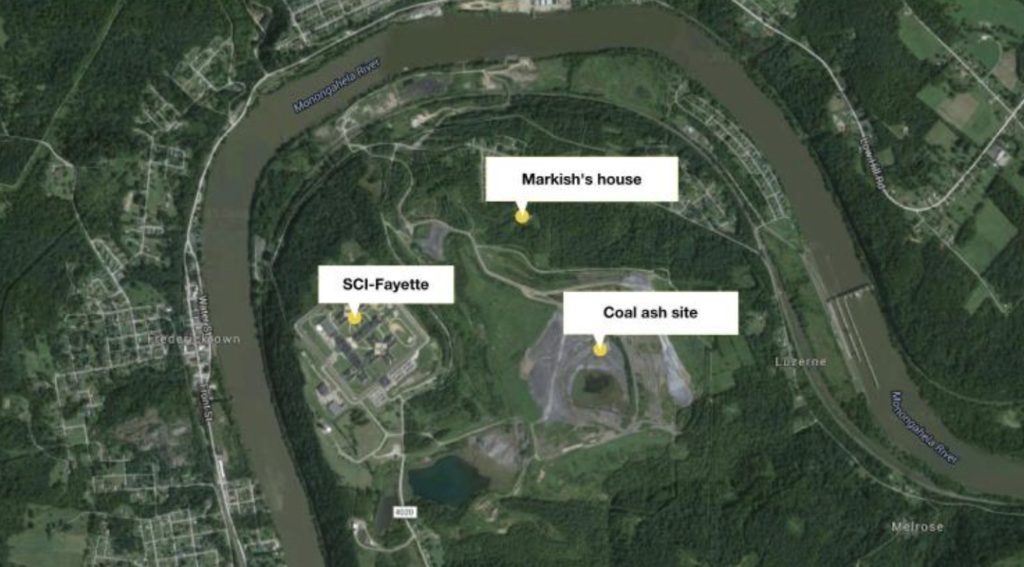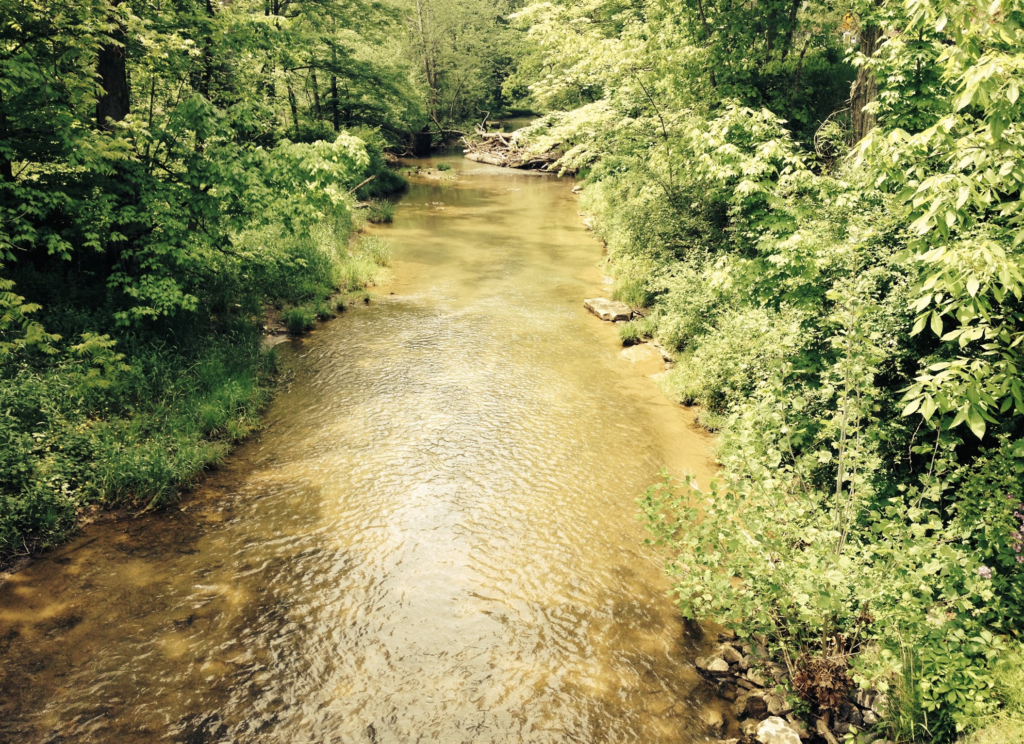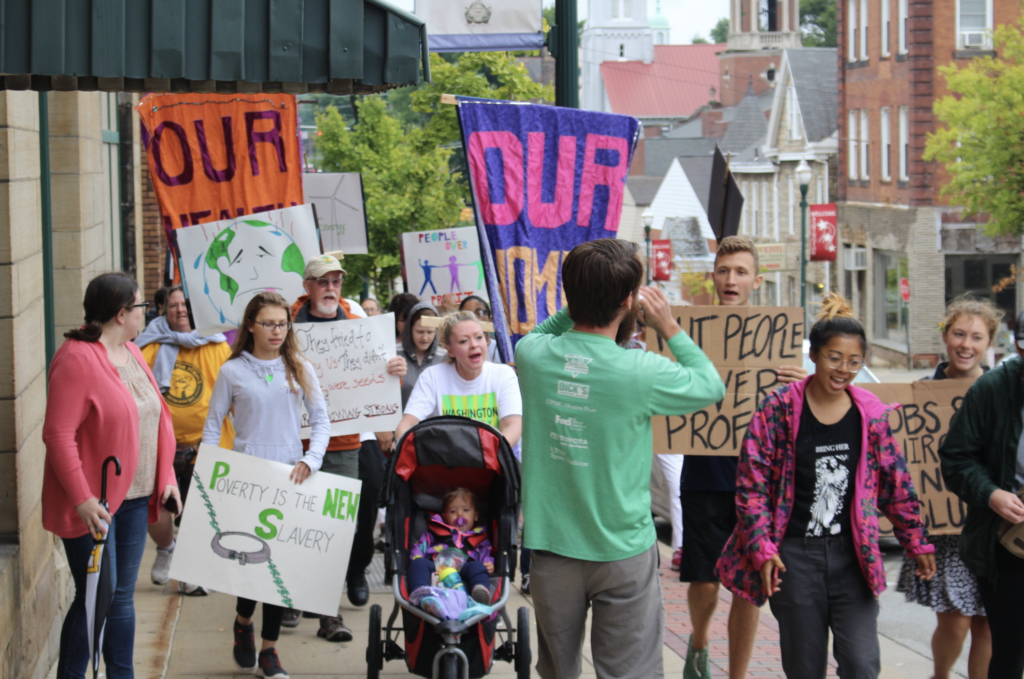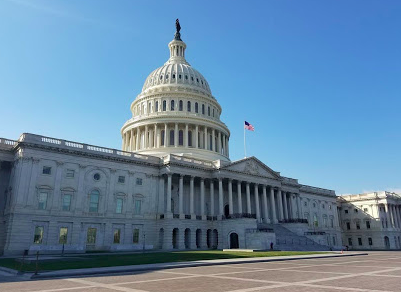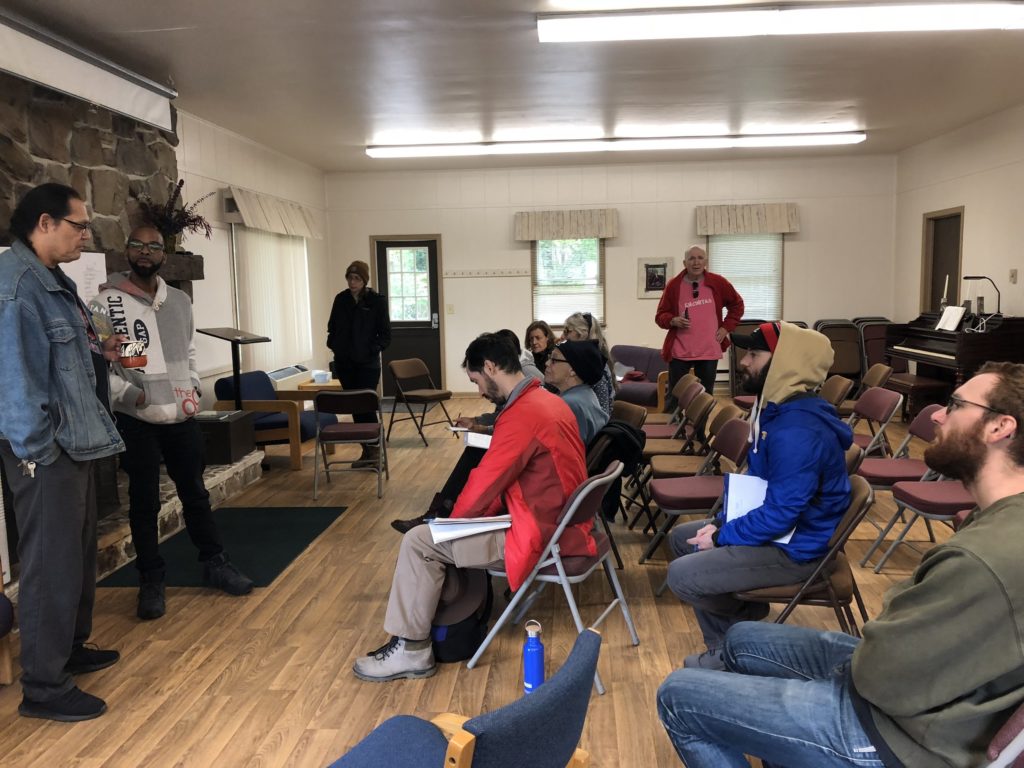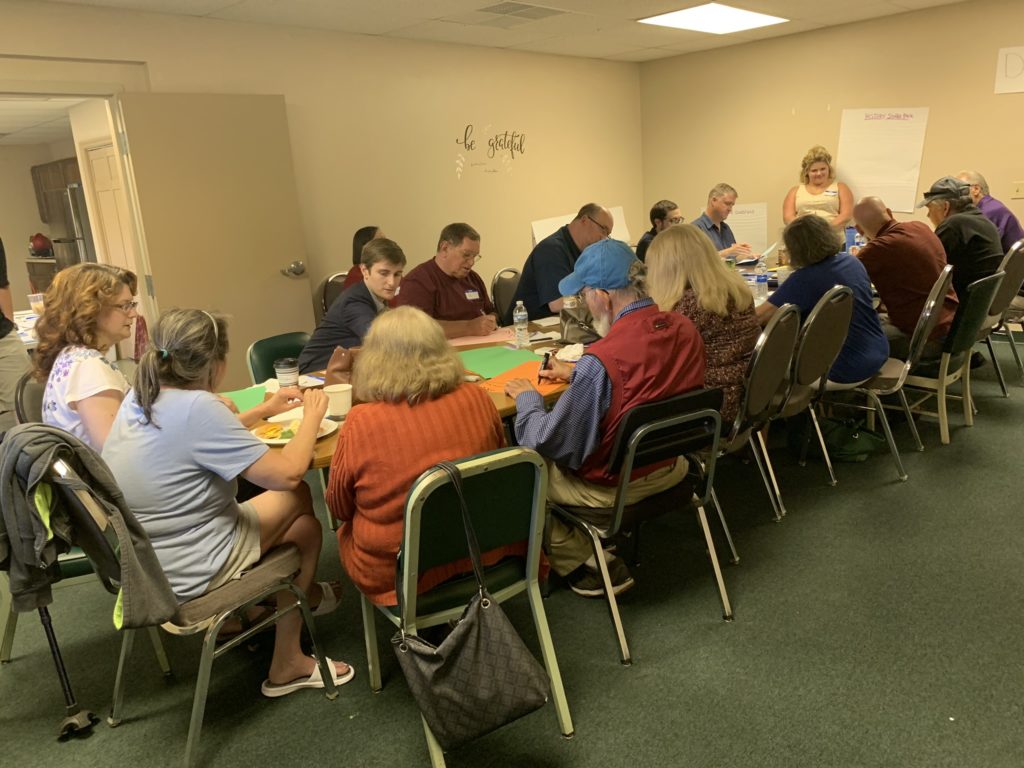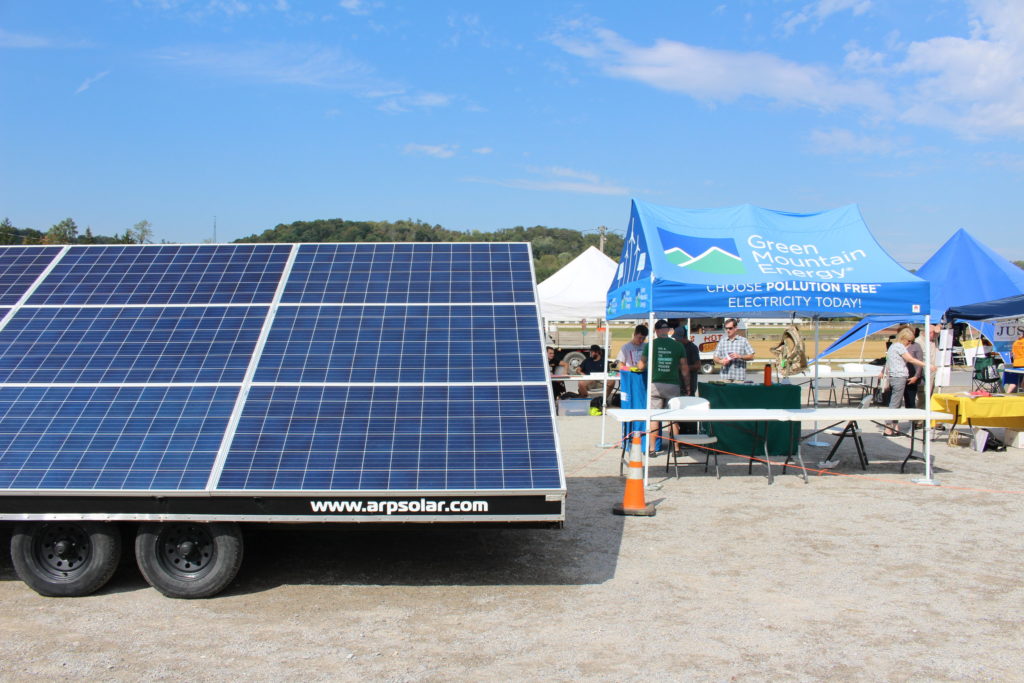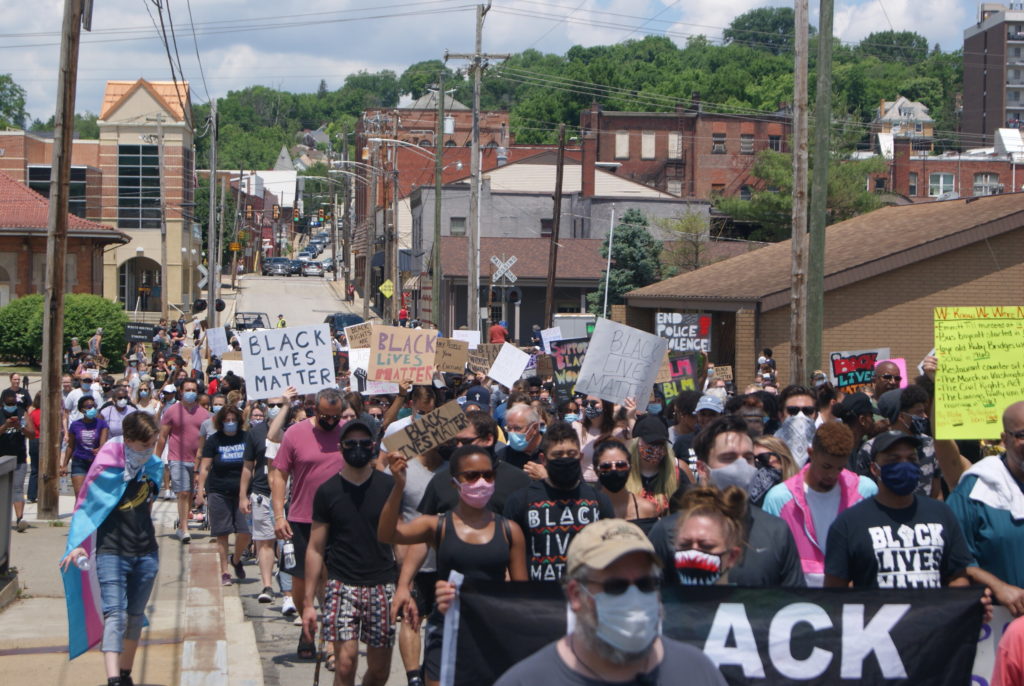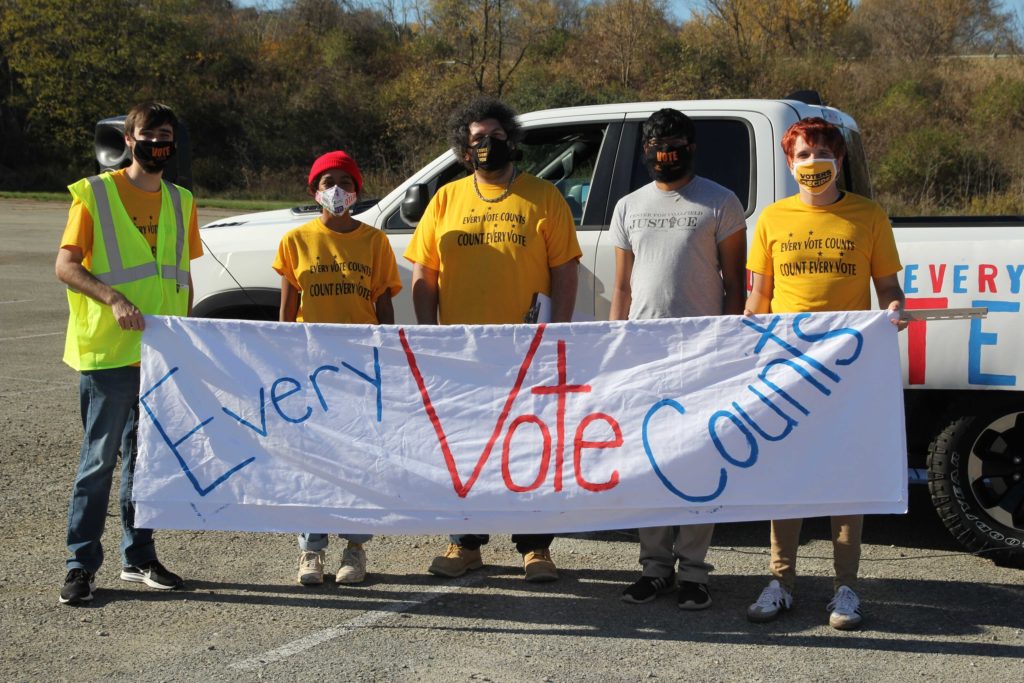Our Mission
To improve policy and regulations for the oversight of fossil fuel extraction and use; to educate, empower and organize coalfield residents; and to protect public and environmental health.
Our approach for working with area residents values their knowledge about the land, waterways, and communities. Our recognition of local expertise is grounded in the belief that people who live with the daily impacts of fossil fuel extraction should be treated with the utmost respect. Our work is informed and directed by how local people think these industries should be held accountable for impacts.
We provide community members with detailed information about proposed projects and potential impacts so they can make informed decisions about individual or collective actions. We connect people in similar struggles together to build power and to invest in the leadership of people living in Washington and Greene Counties.
We blend organizing, communications, legal, and policy strategies to build power with and for residents across Washington and Greene Counties, and to create an expanded set of options for achieving justice. Through this approach, and by investing in people’s skills and leadership, our communities will be able to advocate effectively for a healthy environment and thriving economy.
"I’m proud to work for an organization that is genuinely mission-driven and being surrounded by people who care deeply about making their community a better place. CCJ provides a platform where my coworkers and I can work with our community members to help find pathways where so many have built hurdles. Be it economic justice to environmental justice, I know this team will give everything they have to do what's right for all people in Southwest Pennsylvania." ~ Ethan Story, Advocacy Director
Our Team
Sarah Martik, Executive Director | smartik@centerforcoalfieldjustice.org
Heaven Sensky-Kirsch, Organizing Director | heaven@centerforcoalfieldjustice.org
Nick Hood, Senior Organizer | nick@centerforcoalfieldjustice.org
Jodi Borello, Community Organizer | jodi@centerforcoalfieldjustice.org
Gavyn Marincheck, Community Organizer | gavyn@centerforcoalfieldjustice.org
Sarah Sweeney, Community Organizer | sweeney@centerforcoalfieldjustice.org
Ethan Story, Advocacy Director | Ethan@centerforcoalfieldjustice.org
Seth Sherman, Staff Attorney | seth@centerforcoalfieldjustice.org
Nina Victoria, Community Advocate | nina@centerforcoalfieldjustice.org
Jason Capello, Community Advocate | jason@centerforcoalfieldjustice.org
Lisa DePaoli, Communications Director | lisa@centerforcoalfieldjustice.org
Alex Downing, Digital Communications Strategist | alex@centerforcoalfieldjustice.org
Addie Pazzynski, Communications Fellow | addie@centerforcoalfieldjustice.org
Alli Greenlief, Operations Director | alli@centerforcoalfieldjustice.org
Lovell Johnson, Finance Officer | lovell@centerforcoalfieldjustice.org
Josephine Tarquinio, Development Specialist | josephine@centerforcoalfieldjustice.org
Tonya Yoders, Outreach Coordinator | Tonya@centerforcoalfieldjustice.org
Our Story
The Center for Coalfield Justice was formed as the “Tri-State Citizens Mining Network” in 1994 by a coalition of grassroots groups and individuals concerned about the effects coal mining had on communities and the environment. This was shortly after Congress had passed the Surface Mining and Reclamation Act (SMCRA), which created federal regulations on surface coal mining operations. To read a few words by one of our founders and an activist involved in passing SMCRA, Wyona Coleman, click here.
The people involved recognized the need to work together to build a strong voice in the coalfield community. As Tri-State Citizens Mining Network, the organization advocated for better protections from longwall coal mining, an extreme form of underground mining, at the state level in Ohio, West Virginia, and Pennsylvania. In 2007 we reorganized into the Center for Coalfield Justice (CCJ) and expanded to work on fossil fuel extraction and use, recognizing that our communities were not just impacted by coal mining but also oil and gas. Around this time, the organization brought on their first paid staff to focus on implementing the mission. During the next few years, the core focus of CCJ’s work was centered around accountability for the destruction of the dam at Ryerson Station State Park because of longwall mining impacts.
CCJ responded to the boom in fracking the Marcellus Shale in the late 2000s by providing educational resources about people’s rights around leasing. In 2013, we expanded our focus on environmental justice to include economic justice, recognizing the deep connections of energy extraction and our economy in southwestern Pennsylvania. In 2017, after fully recognizing how environmental issues are tied into economic and social ones, we became more people-focused. We recognize that our members don’t live single-issue lives. In 2019, we started a campaign around civic engagement and voter education, as the only way to protect our health and economy is to ensure that those in power are accountable to the people and not CEOs and shareholders.
Over the last several years, we have focused on investing in the people who live in Washington and Greene counties. Our staff has grown from 2 employees to 15 employees, most of whom live in the communities in which we organize. Our membership has increased by 200% and we have tripled our number of active volunteers. We also moved to a larger office space and added a community meeting space for social justice events in the area.
The Center for Coalfield Justice is a non-profit, 501(c)(3) organization governed by a volunteer Board of Directors. Most of our staff are from or at least live in Washington or Greene Counties, the two counties we serve in southwestern Pennsylvania. We believe that if we all work together, we can have thriving rural communities. To read more about the principles that form the basis of our organizing, check out this blog.
What We've Accomplished
1994
Founded as Tri-State Citizen Mining Network
1997
Coal
Hosted a meeting with over 50 people to learn about what their rights are when being undermined and how to file a complaint. The PA DEP mining chief attended the meeting and fielded community questions.
1998
Environmental Justice
Organized a 250 person rally in Harrisburg, PA for Environmental Justice Day.
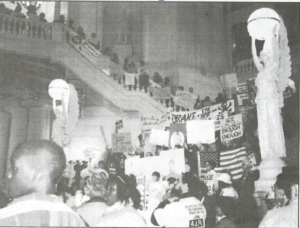
2000
Coal
Filed a lawsuit with partner organizations for more bonding to cover water pollution from coal mining.
2001
Coal
Residents organized a protest outside of state offices with gravestones of the homes lost to longwall coal mining and raised awareness of threats to two historic properties, the Kent Farm and Thralls House, which the coal company was trying to have removed from the National Historic Registry.
2001
Coal
Over 50 community members gathered along I-70 in Washington, PA to raise awareness of the damage to our roads from coal mining and the state’s absence in forcing operators to pay for the repairs.
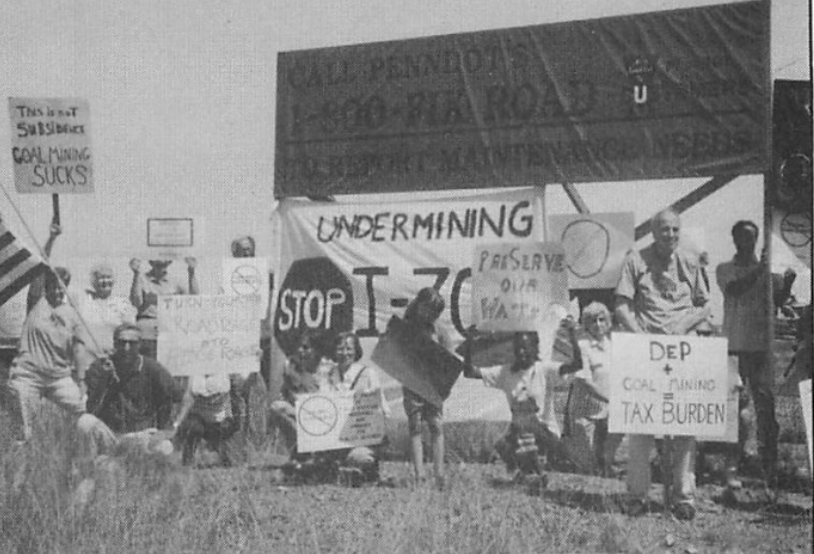
2002
Coal
Launched a campaign to make coal companies pay for longwall mining damage by improving the current mining laws. We held rallies, engaged in letter writing campaigns, and gave legislators a tour of the damage done by longwall coal mining.
2005
Coal
At Ryerson Station State Park, Duke Lake, the jewel of the park, was drained after longwall coal mining happened nearby.
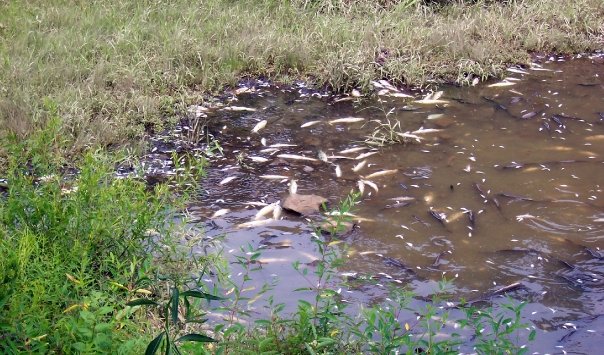
2006
Coal
Organized and held our first-ever DRYerson Festival to advocate for Ryerson Station State park. This event has been held annually ever since.
2007
Reincorporated into the Center for Coalfield Justice.
2010
Fracking/Petrochemical
Joined with Mountain Watershed Association and other environmental partners to bring about the Marcellus Citizen Stewardship Project to provide a watchdog and organizing support to people across southwestern PA who wanted to resist fracking.
2011
Coal
CCJ joined the legal case between Consol, DEP, and DCNR to ensure community interest was represented in the legal fight to restore Duke Lake.
2012
Coal & Fracking
Began to offer Fracking in the Coalfields Tours.
2013
Coal
In May the state settled with Consol Energy for the destruction of Duke Lake at Ryerson Station State Park. Because of CCJ’s advocacy, the state was required to engage with the community for input on this process and to ensure the resources from the settlement went to improving Ryerson Station State Park.
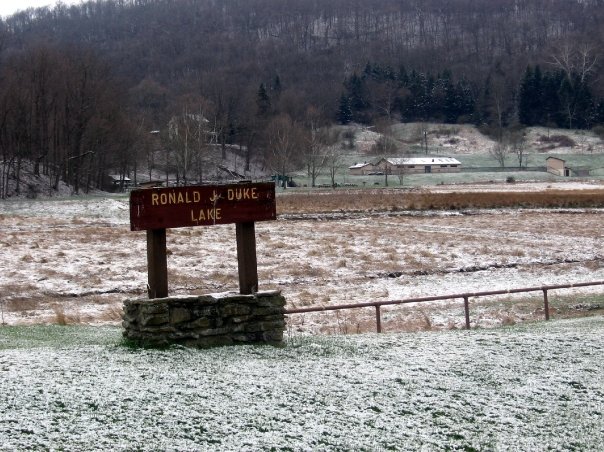
2013
Coal
Started working with community members in Nottingham Township to prevent a new coal mine from opening near Mingo Creek Park. CCJ and the residents got the township to adopt over a dozen special conditions to mitigate harm from a potential new mining operation.
2014
Coal
CCJ filed the first permit appeal for the Bailey Mine East Expansion which authorized mining under Ryerson Station State Park.
2014
Economic Justice
Worked with retired mine managers from Consol Energy to fight to get their healthcare reinstated after the conditions of a sale to Murray Energy broke a promise made to them by Consol. Organized many actions outside the company’s headquarters, and at the hockey arena in downtown Pittsburgh, and spoke at their shareholder meeting. This was our first active work to build relationships with workers and bring more economic justice to our advocacy.
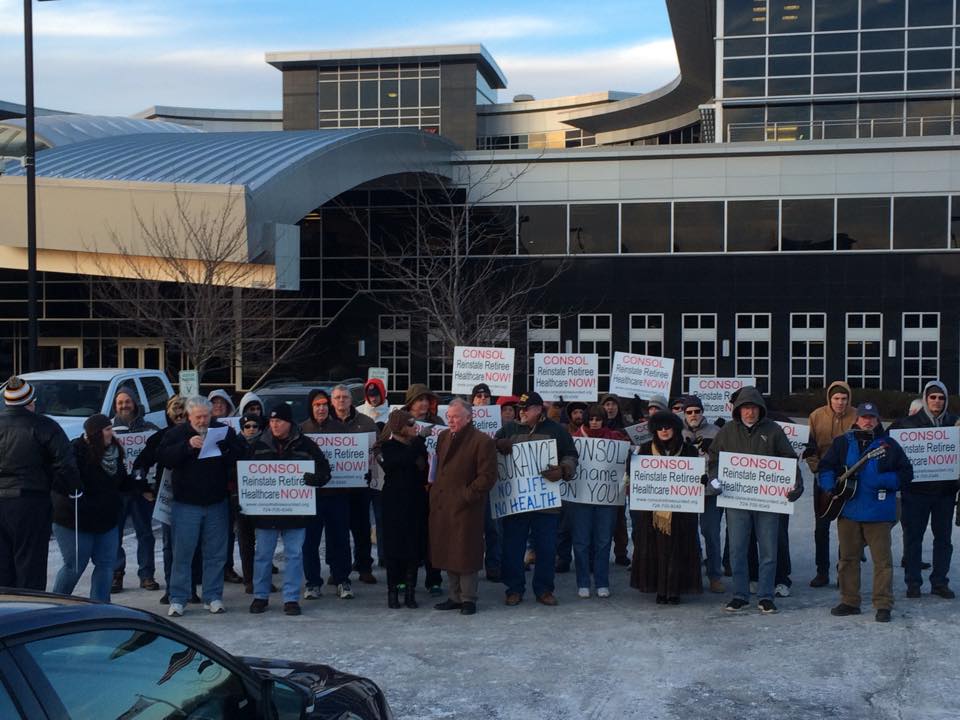
2015
Coal
CCJ filed a second appeal to a permit that authorized mining under two sections of Polen Run outside Ryerson Station State Park boundaries. This permit appeal was consolidated together with the permit appeal filed in 2014.
2015
Coal
The Department of Conservation and Natural Resources (DCNR) informed the community that the dam for Duke Lake at Ryerson Station State Park cannot be rebuilt because of ongoing ground movement. CCJ demanded a community-driven process to decide how to invest resources into the park and was invited to join the government-community task force.
2016
Fracking/Petrochemical
Worked with community members to stop an oil and gas water filling station near the Jefferson-Morgan Schools. The local zoning board denied the application and the local courts upheld that decision through appeals.
2017
Climate Justice
Helped launch the PA Climate Equity Table.
2019
Fracking/Petrochemical
Helped launch the People Over Petro Coalition (POPCO).
2019
Fracking/Petrochemical
Raised awareness of the increase in childhood cancers in our region, bringing impacted parents to Harrisburg, demanding that the PA Governor take action to ensure that oil and gas operations are not putting our families at risk. The Governor committed to allocating resources to the Department of Health to research the public health impacts from oil and gas operations.
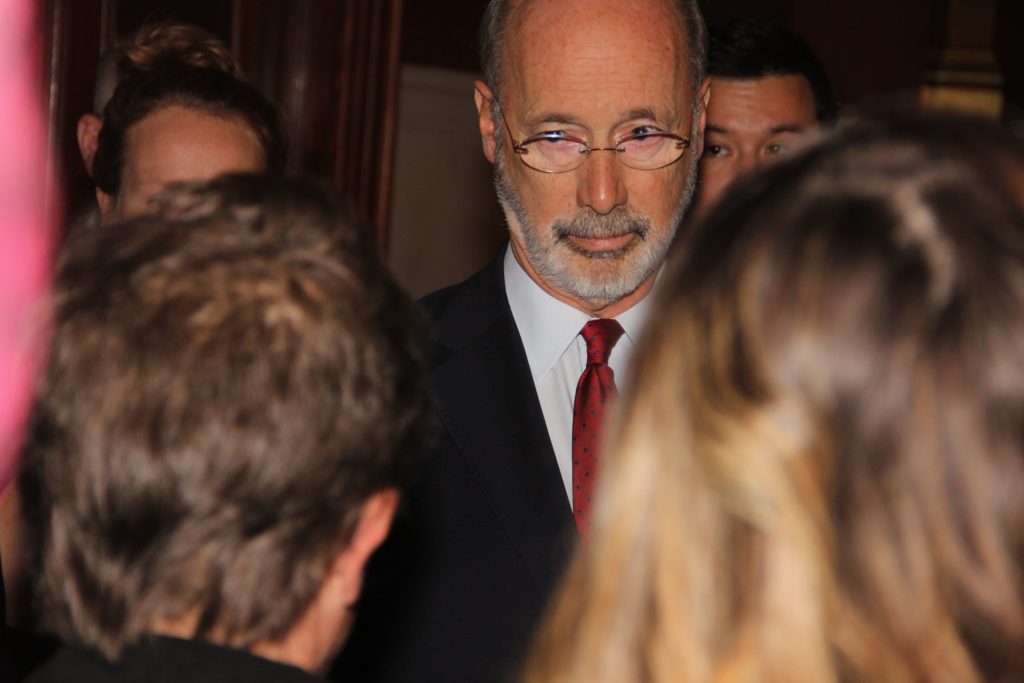
2020
Economic Justice
We quickly adapted to the impacts of the pandemic to move our work remotely. We raised over $12,000 to direct service organizations, like food banks, to support the growing needs in our communities. We hosted dozens of virtual gatherings to stay connected.
